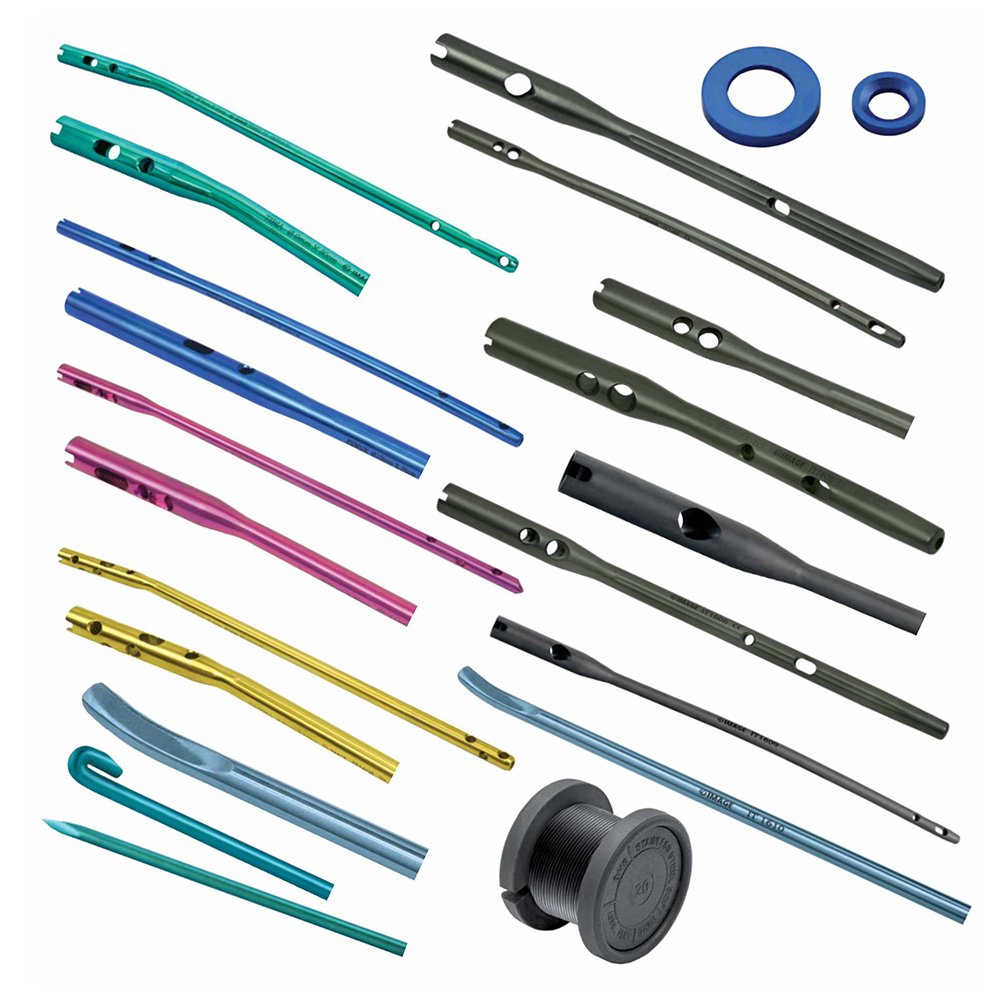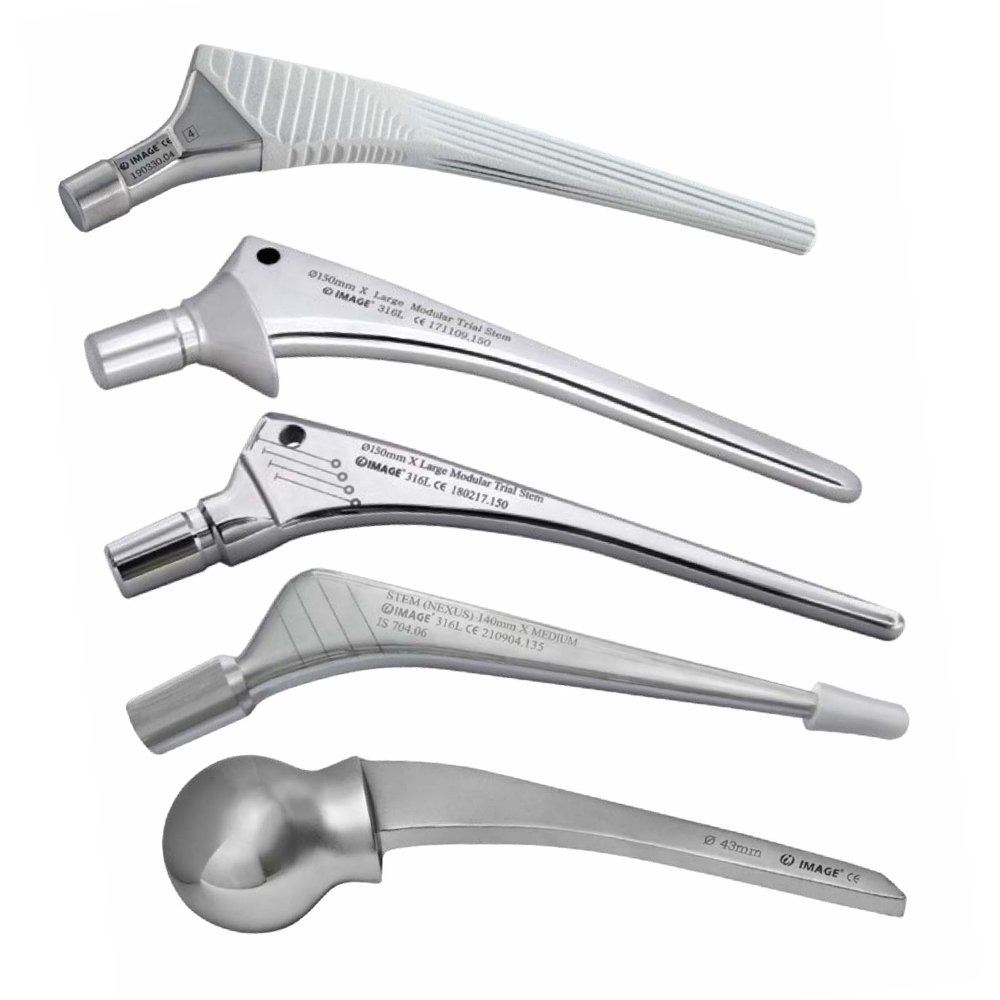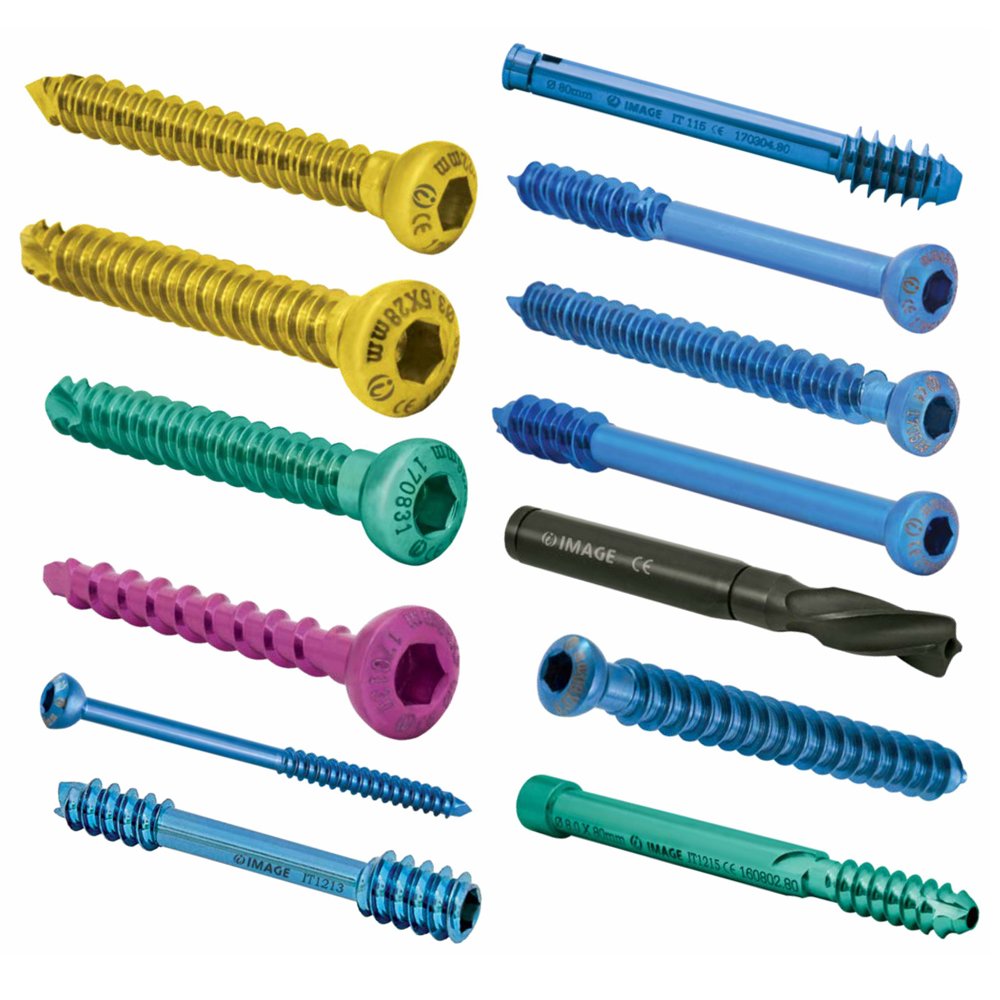Material Composition:
Titanium Alloy: Locking bone screws are typically made of titanium alloy, which offers a combination of high strength, corrosion resistance, and excellent biocompatibility. Titanium’s biocompatibility reduces the risk of adverse reactions and facilitates bone integration.
Locking Mechanism:
Unlike traditional screws, locking bone screws have a threaded portion near the head designed to engage with a corresponding threaded hole in a locking plate. This creates a fixed-angle construct, preventing the screw from toggling within the plate.
Types of Locking Screws:
Cortical Locking Screws: Designed for fixation in the dense outer layer (cortex) of bone.
Cancellous Locking Screws: Suited for fixation in the spongy or trabecular bone.
Variable Angle Locking Screws: Provide flexibility in screw placement angles.
Variable Pitch Screws: Offer variations in thread pitch along the length for optimal engagement with bone.
Thread Design:
Locking bone screws may have specialized thread patterns to optimize their engagement with the bone and the locking plate.
Head Types:
Locking screws may have various head designs, such as flat, round, hexagonal, or Torx heads, depending on the specific application and surgeon preference.
Length and Diameter:
Available in various lengths and diameters to accommodate different anatomical structures and clinical scenarios.
Biocompatibility:
Titanium’s biocompatibility is crucial for orthopedic implants as it reduces the risk of inflammation or rejection by the body, promoting better healing.
Radiopacity:
Titanium locking screws are often radiopaque, allowing for easy visualization on medical imaging such as X-rays.
Sterilization:
Like other orthopedic implants, locking bone screws are sterilized before use to maintain aseptic conditions in the surgical environment.
Indications:
Locking bone screws are used in various orthopedic procedures, especially in cases where additional stability and fixed-angle constructs are necessary, such as periarticular fractures or osteoporotic bone.
Advantages of Titanium:
High strength with a relatively low density.
Corrosion resistance, contributing to long-term stability.
Favorable biocompatibility for reduced risk of complications.






Reviews
There are no reviews yet.